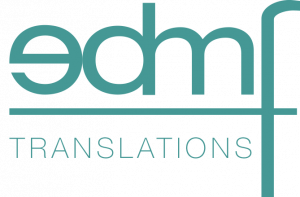Hungarian books in English
Our current quarantine and partial lock-down certainly has its challenges, but it also provides an opportunity to do something different. Hungary has a rich history of writers and authors, many of whom have been translated into English, and the English-language books can be ordered online.
The Paul Street Boys (Pál utcai fiúk) by Ferenc Molnár
There are some gems of Hungarian literature out there, dating from roughly the 1900s to the present day. For example The Paul Street Boys (Pál utcai fiúk) by Ferenc Molnár. Set in March 1889 in Budapest, it tells the story of the rivalry between the Paul Street boys and the ‘boys with crimson shirts’. It is a tale of friendship, heroic sacrifice, betrayal, the different versions of strength and power and the value of each person, no matter how big or small.
View this post on Instagram
Eclipse of the Crescent Moon (Egri Csillagok) by Géza Gárdonyi
Moving further back in time we have Eclipse of the Crescent Moon (Egri Csillagok) by Géza Gárdonyi, another classic that every Hungarian knows well. The narrative revolves around the Turkish siege of the castle of Eger in 1552, as well as the siege of Buda, the Hungarian capital. The plot takes place during the time of the Turkish occupation in the 16th century, and follows the two main characters, Gergely Bornemissza and Éva Cecey, from their childhood to the victory of the defenders of Eger Castle.
View this post on Instagram
Sándor Márai entitled Embers (A Gyertyák Csonkig Égnek)
Sándor Márai wrote many poems, essays and plays, but was also a successful novel-writer His novel Embers (A Gyertyák Csonkig Égnek) was published in 1942, and it features two old friends who meet again after decades have passed and talk all night to catch up. As we get into the story, one of them morphs into an accuser while the other is the accused. It is a story of friendship, betrayal, fidelity, and the emotional suspense keeps you interested all the way through
View this post on Instagram
Fatelessness (Sorstalanság) by Imre Kertész, who won the Nobel Prize for Literature in 2002.
The fourth book in our series brings us closer to the present day and is of course Fatelessness (Sorstalanság) by Imre Kertész, who won the Nobel Prize for Literature in 2002.
Fatelessness follows the life of a teenage Jewish boy in Hungary in the 1940s. A coming-of-age story in the horrible circumstances of a concentration camp and how he reacts to it all. It is not an easy topic, but Kertész’s style and his brilliance in dealing with difficult issues delicately make it a must-read. It has also been turned into a movie, with Ennio Morricone composing the music and Daniel Craig making an appearance as well.
View this post on Instagram
Magda Szabó: The Door
View this post on Instagram
We hope you enjoy reading these four pieces of Hungarian literature in English, and let us know what you thought of them!


